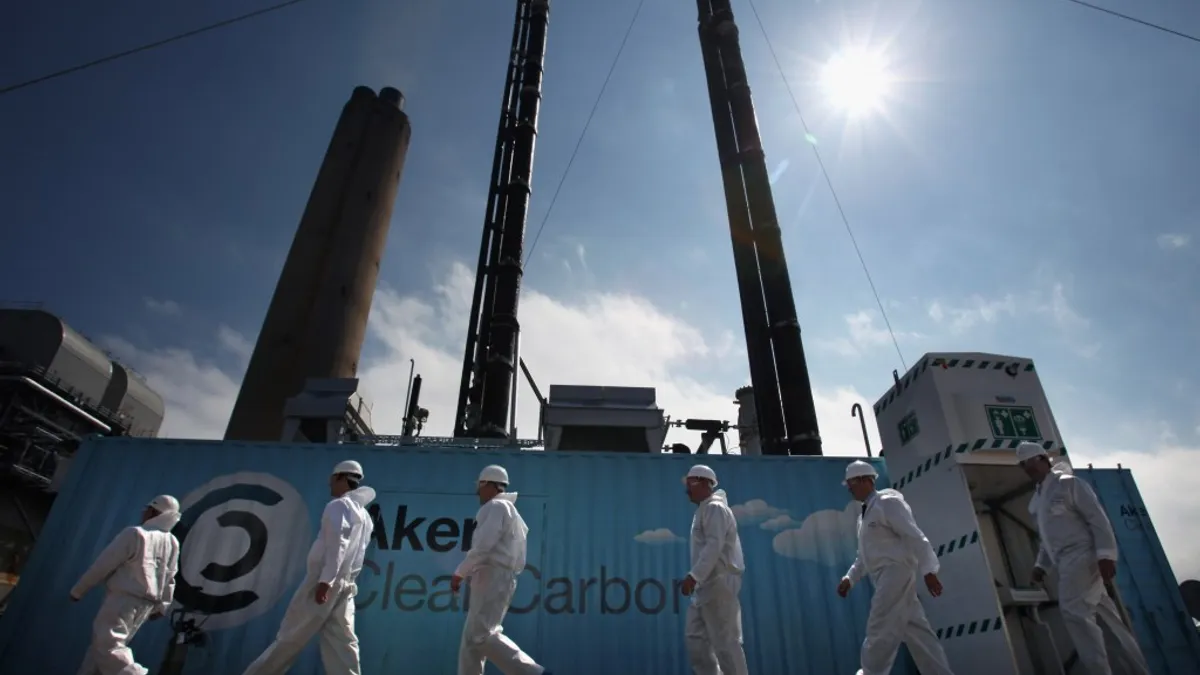Dive Brief:
- Environmental advocates are calling on the Southeastern U.S. states to form a carbon market as a way to meet the Environmental Protection Agency's (EPA) state carbon emissions reduction targets.
- A carbon market would allow states to exchange pollution credits and meet targets collectively, rather than have the burden fall on individual states alone.
- Setting up a regional market would help lower costs of compliance with the EPA, say advocates, and give the region more time to come up with a solid plan to meet the EPA's expectations as multi-state collaborations will get an extra year to submit a plan.
Dive Insight:
Ignoring the potential benefits of a regional approach would be "shortsighted," said Stephen Smith, executive director for the Southern Alliance for Clean Energy, but "ideological inertia" could stymie efforts to set one up. Conservative politicians are generally critical of the EPA's new regulations, and are bound to try and avoid working with them as far as possible. That may stop some legislators from coming to the negotiating table, said Smith. "We don't have this tremendous regional collaborative effort in general."
Utility companies in the region are already well-connected and greater integration could be attractive to them. Whether that translates into collaborative efforts to meet the EPA's new standards remains to be seen. Industry has 120 days to submit comments on the EPA regulations before they are finalized this time next year.













